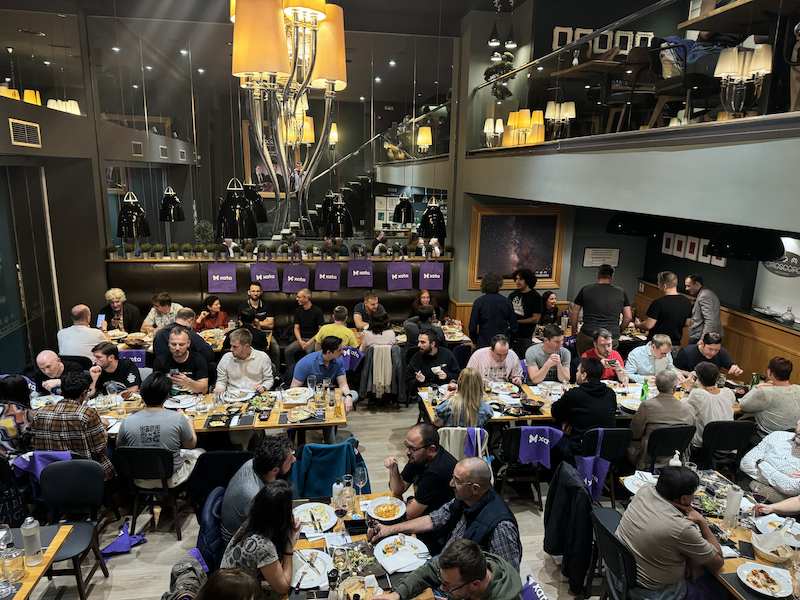Interview with Xata
Any views or opinions represented or expressed in this interview belong solely to the interviewee and do not necessarily represent those of the PGConf.DE 2025 organization, PostgreSQL Europe, or the wider PostgreSQL community, unless explicitly stated.
- In which areas do you expect PostgreSQL to grow most and how does your company contribute to and benefit from that growth?
- Postgres is the ultimate database platform, it is not a one-dimensional database. It has a wide ecosystem of tools and extensions and this diversity makes the project rich and expands into new fronts with each passing version. At the same time, Postgres remains committed to stability and correctness, which also requires continuous growth.

- At Xata, we are sponsoring PostgreSQL conferences and meetups (Prague PostgreSQL Meetup) as well as hosting additional networking events (Postgres dinner in Athens, Postgres happy hour at OSS Vienna) open to all Postgres community members. We are a PostgreSQL platform and we actively contribute to the ecosystem through our open-source tools like pgroll, pgstream, and pgzx. Most recently, we released Xata Agent, an LLM-based Postgres agent designed to help users keep their Postgres environments healthy and problem-free.
- What is your PostgreSQL centered product and what makes it unique?
- Xata is a PostgreSQL platform that enables testing with realistic, anonymized, and sampled production data. We provide instant database branching for any Postgres provider, making development workflows smoother and safer. Our open-source schema migration tool, pgroll, is also a part of our platform. pgroll is built for zero-downtime, lock-free and reversible schema changes. We also recently released our open-source Xata Agent, that monitors your database, finds root causes of issues, and suggests fixes and improvements. It's like adding a new SRE to your team, one with extensive expertise in Postgres.
- How do you foster diversity in your company?
- Xata is one of the few female-founded companies in the Postgres sphere, and we are very conscious about who we bring on board. To achieve such a high level of diversity, with 40 percent of our employees being women, we focus on fostering a safe, judgment-free, and open work culture.

- What feature is missing in PostgreSQL and how would it help if added?
- We’ve gathered insights from our Postgres engineers and compiled a wishlist of missing features that could significantly improve PostgreSQL:
- OS metrics & logs via SQL: Export CPU, memory, and Postgres logs over SQL for easier monitoring and integration
- Exclusion constraints without locking: Ability to add exclusion constraints to existing tables without downtime
- Query quotas: Set resource limits (e.g., cgroups) for query processes to prevent excessive resource usage
- Built-in connection pooling: Native connection pooling support
- Logical replication of schema changes: Support for replicating schema modifications.
- EXPLAIN for table rewrites: Show whether an ALTER TABLE requires a table rewrite to assist migration planning.
- Disk usage quotas & in-memory tables: Enforce tablespace quotas and support true in-memory tables.
- RBAC for system tables: More granular role-based access control for system tables.
- What makes you want to attend the PGConf.DE conference?
- We regularly sponsor Postgres conferences worldwide, and PGConf.DE in Berlin is particularly special to us. With some of our team members based in Germany, it will also serve as a mini-gathering for our team. We will have a Xata booth and are excited to connect with and learn from local Postgres enthusiasts. This time, we are also bringing two talks:
- Monica Sarbu, our founder & CEO, will present “Best practices for creating Ephemeral Environments with PII for Postgres”.
- Gulcin Yildirim Jelinek will deliver her widely acclaimed talk of the year, “Anatomy of Table-Level Locks in PostgreSQL”.
